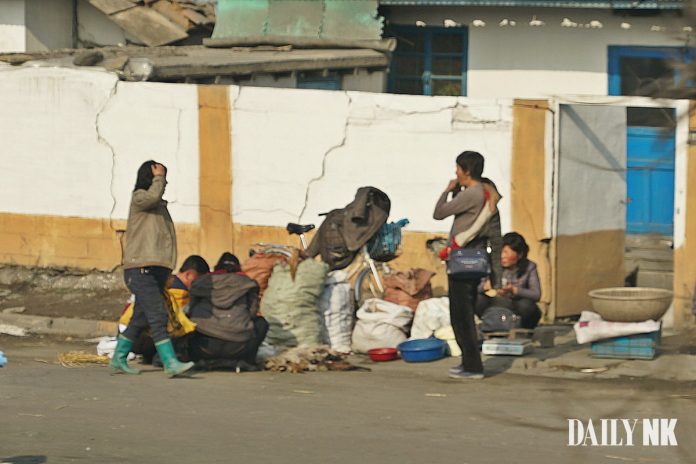
The huge disparity between the prices at which ruling party officials and ordinary people buy grain is causing controversy. The general public pays more than 100 times as much as officials, who receive food at prices set by the state. Criticism is growing in North Korea over this dual pricing system.
The government price for a kilogram of rice is KPW 46, while state-run grain stores sell rice at nearly 100 times that price, at KPW 4,000 per kilogram. Ordinary people condemn this, complaining that the Workers’ Party “extorts us while saying it works for us” and “treats the people like idiots.”
The massive price difference is based on the socialist system. In food distribution, the authorities set prices under the direct planning and control of the government within an official hierarchy. Party and government officials became a relatively privileged group, and a food distribution system emerged that distinguished between the privileged class and ordinary people.
The core component of North Korea’s socialist system is the grain rationing system, which the country has yet to fix in the 70 years since the authorities introduced it in the 1950s. The state distributes rations to people through their workplaces. At first, this seemed like a short-term solution. But the system continues today, with powerful agencies such as the Workers’ Party, courts, prosecutors’ offices, the military, and police and state security agencies receiving grain at state prices, even after the authorities stopped providing rations in the 1990s due to economic difficulties.
With market grain prices nearly 100 times the government price, officials are essentially getting food for free. For powerful people who have never gone to the countryside and picked up a sickle, it is clearly absurd to take the fruits of farmers’ hard work for free.
In addition, the state forces farmers to sell their grain to the government at artificially low prices, reducing the income of peasant households.
The anti-people nature of the Workers’ Party can be found in this system, where the most powerful people maintain extravagant lifestyles while pressuring ordinary people to maintain loyalty to the regime.
The people of North Korea must wake up to this. They must not remain silent in the face of the irrationality of the regime and help prolong the present situation, but complain loudly and push for social change.
Translated by David Black. Edited by Robert Lauler.
Views expressed in this guest column do not necessarily reflect those of Daily NK. Please send any comments or questions about this article to dailynkenglish@uni-media.net.
Please send any comments or questions about this article to dailynkenglish@uni-media.net.


















